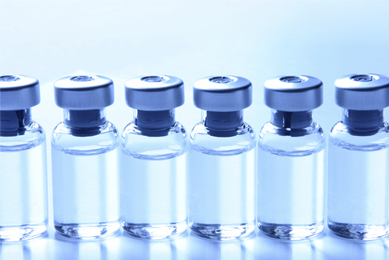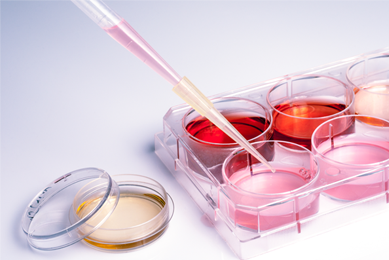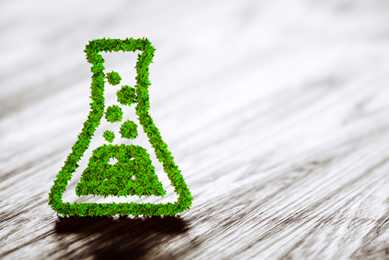What is bioproduction?
The promise of the broad bioeconomy relies on the bioproduction of clinically and commercially important biological products and chemicals from living cells. Bioproduction utilizes biological systems such as cells and microorganisms to synthesize or produce biologics for medical therapeutics and industrial applications.
Bioproduction of small molecules can be synthesized by high-throughput chemical processes or large-volume fermentation with a high rate of consistency and simplified scalability. For the bioproduction of large molecules, the process is often more complicated, can be time-consuming, and often requires multiple highly specialized and tightly controlled steps.
Why it’s important
By using the natural pathways found in cell lines and microorganisms, or modifying these pathways through genetic engineering, researchers can synthesize various target biologics that are essential in the pharmaceutical, chemical, food, energy, and agricultural industries. These bioprocesses are already an integral part of many industries today.
The COVID-19 pandemic raised public awareness of the importance of bioproduction processes for global health. The control and mitigation of SARS-CoV-2—the virus that causes COVID-19—required a juggernaut of research and development to quickly develop and produce life-saving treatments along with the supply chains necessary to fuel the concerted effort.1 Small start-ups and large pharmaceutical companies ramped up research and production to produce vaccines and therapeutics to fight SARS-CoV-2 in record time.
Other pervasive health problems have led to the development of new biologics that are still in demand today. An example of an essential biologic manufactured using bioproduction is insulin. This life-saving protein can be commercially produced in the bacterium Escherichia coli through the incorporation of the human insulin gene into the bacterial genome via recombinant DNA technology.2,3 Once the gene is in place, insulin is produced using normal cellular machinery and is then removed and purified as a medicine for the millions of people living with diabetes.
What’s needed?
The performance of the bioprocess and the quality of the produced biologic can be influenced by the starting materials used. For these critical bioproduction products, it is important to have access to:
- High-quality, authenticated biological materials sourced from an established biorepository
- Curated reference-quality ‘omics data that are traceable to credible materials
- A facility equipped for the manufacture and storage of both the starting materials and final products
How we can help
ATCC supports bioproduction research and development efforts by providing the scientific community with access to an extensive portfolio credible resources such as Vero, MDCK, and HEK-293 cell lines—including STAT1 and BAX knockout cell lines for enhanced virus production. We also offer purified pneumococcal polysaccharides that can be used in vaccine development and microbial strains with potential applications in antibiotic, organic acid, and biofuel production.
Did you know?
ATCC offers bioproduction cell lines that support vaccine development, antibody production, and protein expression.
Brian Shapiro, PhD
Marketing Segment Manager, Oncology, ATCC
Brian A Shapiro, PhD, works to communicate the scientific breakthroughs of ATCC’s product development laboratories to the biomedical research community. Brian is the Executive Producer of ATCC's Podcast, Behind the Biology. Previously, he worked at Virginia Commonwealth University, where he investigated the role of pre-mRNA splicing in the multi-drug resistance of lung cancer. Dr. Shapiro attended the Medical College of Georgia, where his research focused on adrenal physiology as well as diseases of the epidermis.
Cara Wilder, PhD, ELS
Senior Scientific Writer, ATCC
Dr. Wilder is a Senior Scientific Writer at ATCC. She has a PhD in Microbiology with background experience working with several pathogenic bacterial species in both in vitro and in vivo environments. Dr. Wilder is the author of numerous publications on varying topics of scientific relevance, including quality control, microbial contamination, assay development, proficiency testing, and multidrug resistance.
Explore our resources for bioproduction

Bioproduction
Explore our credible resources for industrial bioprocessing and cell-based applications.
More
Cell lines for enhanced virus production
Accelerate your vaccine and gene therapeutic development projects with ATCC’s cell lines for enhanced viral production.
More
Microbial bioproduction
Achieve the sustainable production of commercially and clinically relevant chemicals with authenticated microorganism from ATCC.
MoreReferences
- U.S. Food & Drug Administration. Coronavirus Disease 2019 (COVID-19) Emergency Use Authorizations for Medical Devices. Accessed online <https://www.fda.gov/medical-devices/emergency-use-authorizations-medical-devices/coronavirus-disease-2019-covid-19-emergency-use-authorizations-medical-devices>.
- Baeshen NA, et al. Cell factories for insulin production. Microb Cell Fact 13: 141, 2014. PubMed: 25270715
- Zieliński M, et al. Expression and purification of recombinant human insulin from E. coli 20 strain. Protein Expr Purif 157: 63-69, 2019. PubMed: 30735706